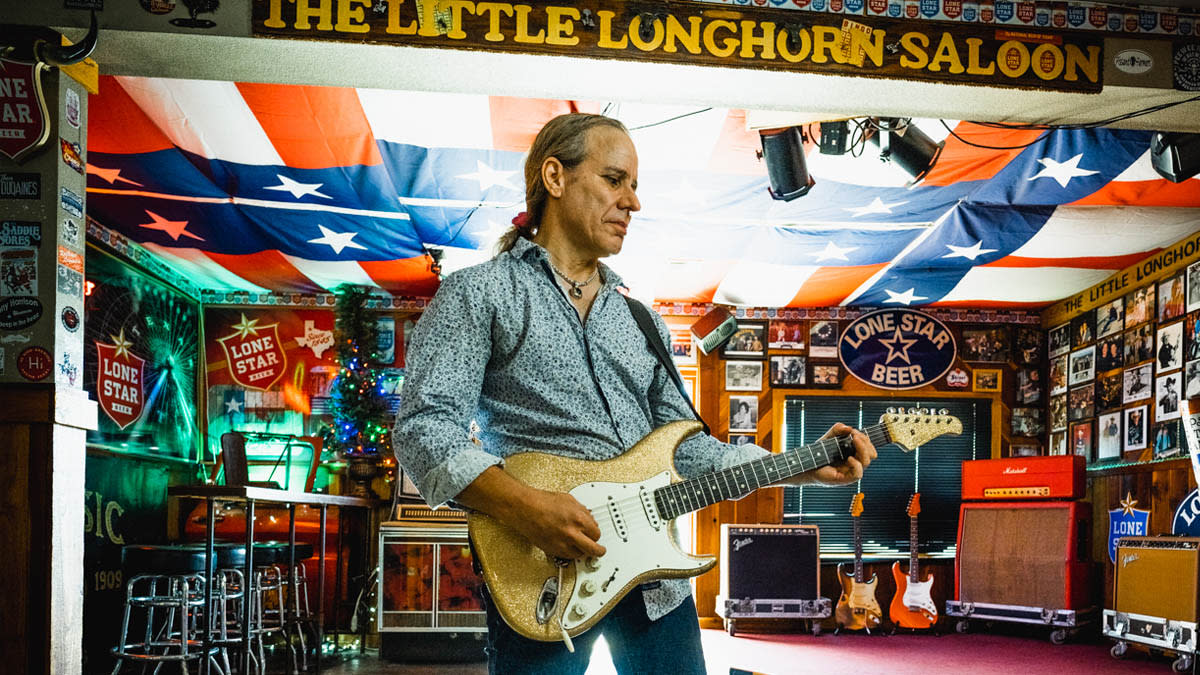Chris Duarte: “I sound much better when I practice every day. The guitar gives you back what you put into it – it’s that simple”

Chris Duarte broke through way back in 1994, when his second album, Texas Sugar/Strat Magik, sold more than 100,000 copies, serving notice of a new blues guitar hero in town. The release of Ain’t Giving Up, his 15th album, sees him reunited with Texas Sugar producer Dennis Herring to deliver one of the strongest records in his catalog.
“I’d forgotten about the way Dennis liked to record. He tapes everything and keeps it all,” Duarte says. “When I was doing guitar parts and it came to the solo I’d just play straight off the top of my head, thinking I’d go back and put the actual solos on later. When I went back in to do the vocals, I took my guitar as I thought I’d be putting on some guitar tracks, but Dennis just said they were all done. Everything I recorded on those first sessions is what we used.”
Undoubtedly, that was a major factor in the vital, raw sound of the album. “There was no overthinking,” he says. “You can start to second guess yourself, whereas when I did the parts I just played everything exactly as I felt it, and it couldn’t have turned out better.”
Some of the tracks really push the blues boundaries. “Come My Way has a '70s Univox drum machine and Big Fight sees me try to channel a bit of a Sly Stone vibe,” Duarte notes. “There’s a run that I do in the solo that isn’t at all precise – ‘time and perfection be damned,’ you know? John Coltrane is my number one guy in terms of influence for my soloing, and I think there’s some of that in my approach on this one.”
A signature element in Duarte’s playing is his immaculate sense of rhythm and groove. “I’d credit that to the fact that I’ve always worked real close with a metronome, and when I’m playing with a band, I always try to make a strong connection with the drummer – I particularly like it when they get into cross-rhythms and that kind of stuff. I can really feed off that and almost syncopate my playing against theirs at times. There’s nothing wrong with being straight on the beat, but I do always love to play around with the push and pull of timing and rhythmic pulses.”
Duarte is an ardent advocate of the joys of practicing. “I need to play every day. I sound much better when I practice every day. I have a routine that I’ve done since the early days, where I’ll run major and minor scales, then I’ll start working on ideas.
“The proof of the benefits of regular playing really shows itself at the end of a tour, when you realize that your playing is on another level from the first dates. The guitar gives you back what you put into it – it’s that simple.”
Ain't Giving Up is out now via Provogue/Mascot Label Group.

